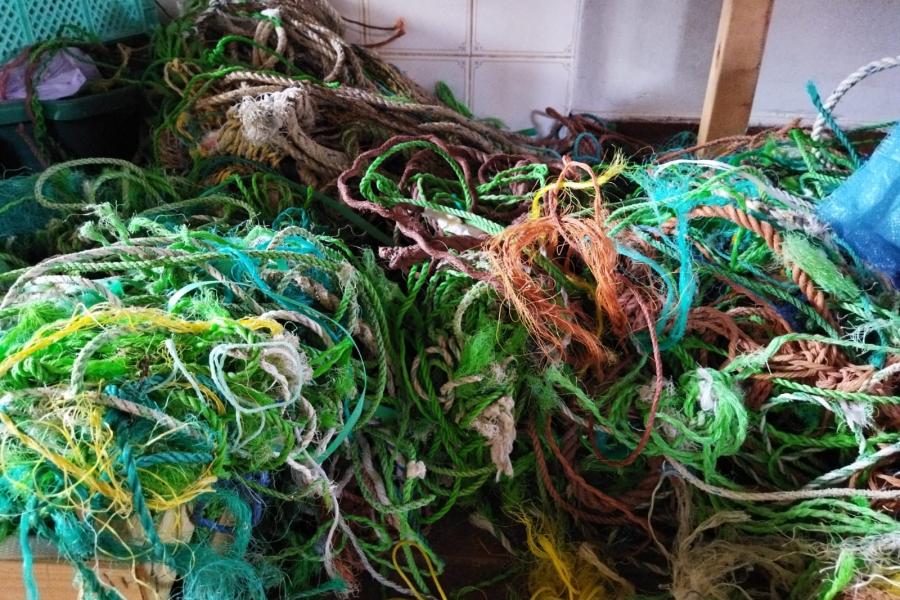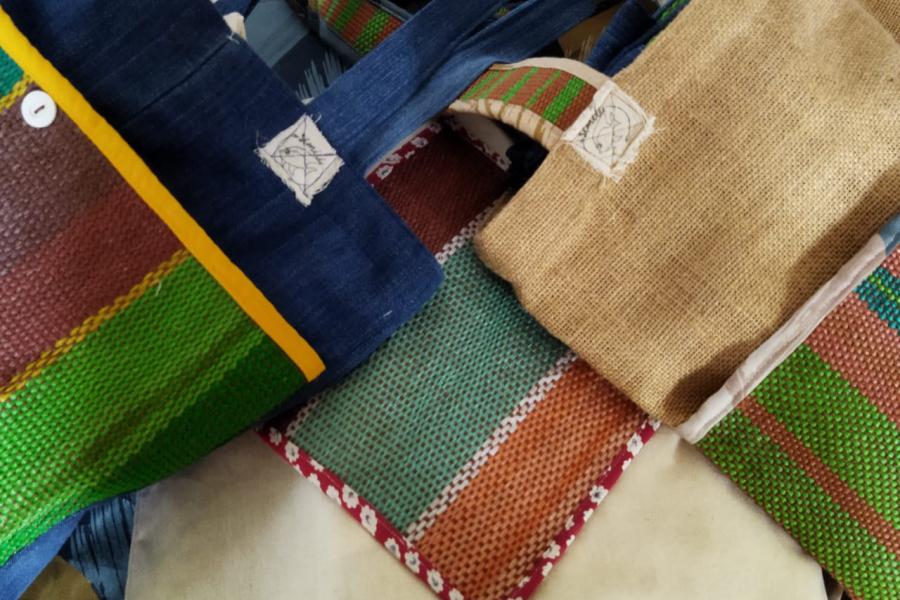Impact story by UN in Cabo Verde, edited by the Joint SDG Fund
In the coastal community of Salamansa on São Vicente Island, two environmental activists, Débora Roberto and Helena Moscoso, embarked on a remarkable journey with their SIMILI Project. Fueled by their passion for the sea and a deep concern for marine conservation, they set out to tackle the pressing issue of marine and industrial waste that was wreaking havoc on marine life and the overall quality of our planet.
Their vision was simple yet powerful: to turn marine garbage, particularly discarded fishing nets, into reusable products through innovative fabric-making techniques. With this goal in mind, they joined the United Nations Joint Programme called "Connecting the Actors of the Blue Economy: Generating Employment, Improving Livelihoods, and Mobilising Resources."

For Débora and Helena, participating in this entrepreneurial programme was an opportunity to translate their shared love for the sea into a tangible project that could make a difference. Through the programme, they received invaluable support, connecting with experts and mentors who helped them refine their business model and navigate the complexities of the blue economy.
The heart of the SIMILI Project lies in its circular economy approach, which not only minimises the negative impacts of abandoned fishing nets but also creates new opportunities for the community. By transforming these nets into fabric, they not only prevent further harm to marine life but also empower women in the Salamansa community by providing them with employment and skills training.

Supported by the Joint SDG Fund and co-financed by agencies such as FAO, UNIDO, UNDP, and IOM, the SIMILI Project exemplifies the spirit of collaboration and innovation driving progress towards the Sustainable Development Goals. It serves as a powerful reminder of the potential for passion and creativity to drive positive change, protect our environment, and empower communities for a sustainable future.
Originally published by UN in Cabo Verde
Note:
The Joint SDG Fund's joint programmes are under the prestige leadership of the Resident Coordinator Office and implementing United Nations Agencies. With sincere appreciation for the contributions from the European Union and Governments of Belgium, Denmark, Germany, Ireland, Italy, Luxembourg, Monaco, The Netherlands, Norway, Portugal, Republic of Korea, Saudi Arabia, Spain, Sweden, Switzerland and our private sector funding partners, for a transformative movement towards achieving the SDGs by 2030.



















